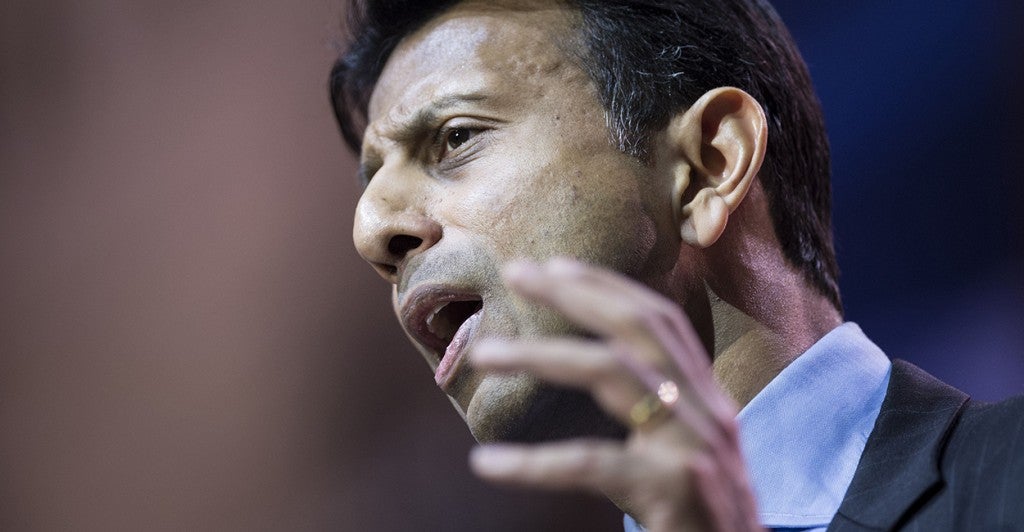President Obama continues his European tour today with a stop in Paris. As he and French President Francois Hollande discuss options to resolve the ongoing crisis in Russia, the weakness of the Obama administration on the global stage contrasts strikingly with the bravery shown by the D-Day soldiers, whose heroic actions 70 years ago on the Normandy beaches we commemorate this week.
But the most striking portrait of this Franco-American summit could be of two world leaders whose pretensions to economic knowledge vastly exceed their capacity to make smart policy choices. Take for instance Hollande’s decision to pass massive tax increases upon taking office two years ago. Last week, France’s Court of Auditors revealed that those tax increases raised only about half of their expected revenue, leaving a 14 billion euro shortfall in the French budget.
It wouldn’t be a surprise to most economists that when you tax something, you get less of it. Or, as even the new French prime minister, Manuel Valls, recently admitted, “Too much tax kills tax.” But this simple concept seems as foreign to Hollande as it does to Obama himself.
The economic results of the Hollande agenda have been as predictable as the revenue shortfall: zero growth in the first quarter of 2014 and record unemployment of 11 percent. To restore true growth—and raise more tax revenue in the process—France’s economy desperately needs structural reforms. Notoriously rigid labor laws—epitomized by a national manual exceeding 3,000 pages that micromanages every facet of the French workplace—discourages businesses from hiring. It’s little wonder that French workers living near Germany had to escape across the border to work, because they couldn’t find jobs in their native land.
Sadly, Obama seems intent on exporting this French model of economic malaise and ennui to our shores. At a time when labor force participation rate is at a 36-year low, the Congressional Budget Office concluded Obamacare will result in more than 2 million Americans working fewer hours or leaving the labor force altogether. CBO also found the president’s proposed minimum wage increase could cause as many as 1 million Americans to lose their jobs.
But the piece de resistance in the Obama administration’s economic assault came earlier this week, when the EPA released its proposed carbon emissions regulations. An analysis released last week by the U.S. Chamber of Commerce illustrated the potential damage regulations such as these could inflict: tens of billions of dollars in reduced investment, hundreds of thousands of jobs lost every year for decades and a whopping $586 billion in reduced household income for American families through 2030. Even in Washington, that’s real money.
But in Louisiana, we’ve tried to show that there is a better way—one that leads to quality jobs and robust economic growth. While Obama raised federal taxes by more than $1 trillion, we passed the largest income tax cut in state history. As a Democratic Congress rammed through trillions in new spending for Obamacare, we cut the state budget by 26 percent. And even as the EPA proposes new regulations that could decimate critical portions of our energy sector, we’ve worked to create a more predictable legal environment for energy companies in the state.
The record shows what that better way can mean for a state—the lowest unemployment rate in the South; 2 million jobs for the first time in state history; economic growth rates nearly 50 percent higher than the national average since 2008; and six straight years of migration into the state after decades of out-migration, as families are beckoned by jobs and the prospect of a brighter economic future to come home.
We still have more work to accomplish, but the achievements of the people of Louisiana the past six years have been nothing short of tremendous. Now just imagine what we could accomplish if Obama, Harry Reid and Nancy Pelosi weren’t standing in the way?
That’s why I hope that, as they depart from the Elysee Palace, the message Obama and Hollande send about the policies needed to create economic growth will echo the words of President Reagan in his farewell address: “There’s a clear cause and effect here that is as neat and predictable as a law of physics—as government expands, liberty contracts.”
